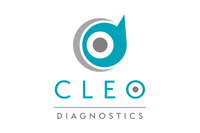Study Shows Medical Device Revisions Undergo Softer Approval Process
A new study evaluating the clinical trials medical devices go through as part of their redesigns or updates found these can often rely on “inadequate or potentially biased data.”
A new study evaluating the clinical trials medical devices go through as part of their redesigns or updates found these can often rely on “inadequate or potentially biased data.”
In the life span of a medical device, it may need updating or upgrades to the latest tech available. Even after a product has been approved by the FDA, a revision must go through the same vigorous tests, but according to this study that may not be the case all the time.
According to the data released August 15, less than half of the trials for the modifications on medical devices were randomized between 2006 and 2015, less than 30 percent were blinded.
“There are limitations in the quality of the studies and data evaluated by the FDA to support modifications of high-risk devices,” the study’s key points indicated.
Less than half of the studies were randomized, a championed practice
One of the senior authors of the study Dr. Rita Redberg said in a statement there’s a lot of pressure on the FDA to let innovative devices into the market and generally speed up its approval process.
“[B]ut you don’t know if they’re innovative or life-changing until you’ve done a careful study. These were short studies, with low-quality data, and little follow-up after approval,” Dr. Redberg said.
Deborah Kotz a media officer for the FDA emailed Investing News Network (INN) saying the agency is “aware of the study and will carefully consider its findings.”
If a device is faulty or lacks the functionality it was created to serve on a massive scale, the originating company may perform a recall in which all the devices from a specific set of time are returned and investigated. Recalls often have a negative effect on a company’s stock and reputation, depending on their scale and damage.
Dr. Redberg said the FDA has tossed out the possibility of standardizing the data used for device failures. “Even when they do ask for a post-approval study, it’s often not completed or done at all,” she said.
Call to action for Congress and Public, senior author says.
The researchers from the University of San Francisco and the Yale School of Medicine also found 91 percent of the 83 clinical studies they investigated were backed up by only one study.
Congress and patients should be more involved in this key process which has left a lot of devices in the market that “haven’t been shown to be safe or effective,” Dr. Redberg said.
According to the statement from UCSF patients have few options for legal action in the case they encounter a defective medical device in the market due to a Supreme Court ruling in 2008.
“FDA approval protects manufacturers from lawsuits over devices’ safety or efficacy; this principle is likely to hold even if approval is based on a study that did not follow best practices.”
Don’t forget to follow @INN_LifeScience for real-time updates!
Securities Disclosure: I, Bryan Mc Govern, hold no direct investment interest in any company mentioned in this article.



